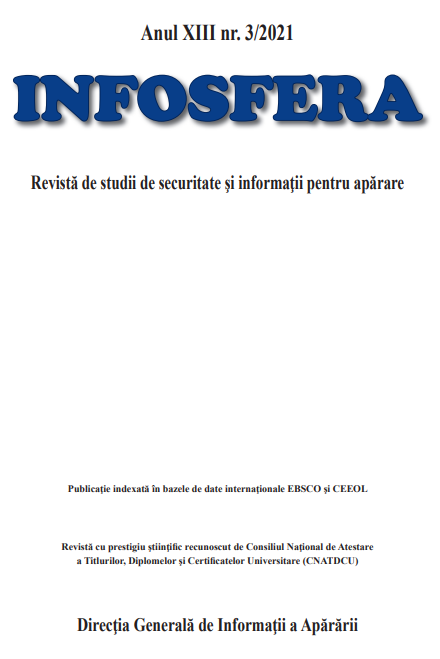Integrarea euro-atlantică a Balcanilor de Vest: un imperativ geostrategic pentru stabilitatea regională și continentală
Euro-Atlantic integration of the Western Balkans: a geostrategic imperative for regional and continental stability
Author(s): Florin-Vasile GrozaSubject(s): Security and defense
Published by: INFOSFERA - Revista de studii de securitate si Informații pentru Apărare
Keywords: Western Balkans; balkanism; conflict; European Union; NATO; redrawing borders; regional risks; integration process;
Summary/Abstract: After three decades from the mixed process (peaceful/violent) of Yugoslav disintegration, the tectonic tensions between the successor states sends a clear geopolitical message: Yugoslav heritage seems to be an unfinished business. Fragmented and in a continuous competition for local political reasons, countries from Western Balkans are still trying, individually, to define and refine a strategy that would, potentially, shape a European and North Atlantic future for their citizens. Unfortunately, the history and geography of the region, still play an important role in the process of Euro-Atlantic integration. But there is also another major factor that inhibits the process: that is the perception of majority of the Europeans that regard the Balkans as a volatile, violent and vile area, which should be kept at the door of European Union. And that is one of the basic reasons that after almost two decades, Brussels made little steps toward creating a tailored strategy to integrate Western Balkans. On the other hand, NATO was more successful in developing an integratory process. After years of struggle, Croatia, Albania, Montenegro and North Macedonia became full members of the Alliance, marking a corner stone for the stability of the region. But with Skopje becoming the latest member, NATO project also seemed to come to a halt. The actual geopolitical context is foggy, unpredictable because, even before the Covid 19 pandemic, the Euro-Atlantic project for the Western Balkans seemed to enter in a stagnant, visionless period. And this perception developed fast in the new intense global competitive environment, where the supremacy of the Western societal model it is being challenged by the expansive (mainly in terms of political, cultural and economic influence), ambitious and authoritarian regimes like those from China and Russian Federation. The challenge, developed in a non-violent but aggressive manner, is part of a strategic global chess game that aims to undermine the unity among Western power brokers, to counter their political and economic model of shaping the world. And the Western Balkans are on the board. Today, more than ever, it is up to NATO and European Union to take advantage of a geostrategic momentum in order to bring the region within the borders of Euro-Atlantic infrastructure before others, which are keener, to put a fi rm step in the geopolitical backdoor of Europe causing long term serious risks.
Journal: INFOSFERA - Revista de studii de securitate si Informații pentru Apărare
- Issue Year: XIII/2021
- Issue No: 3
- Page Range: 46-55
- Page Count: 10
- Language: Romanian

